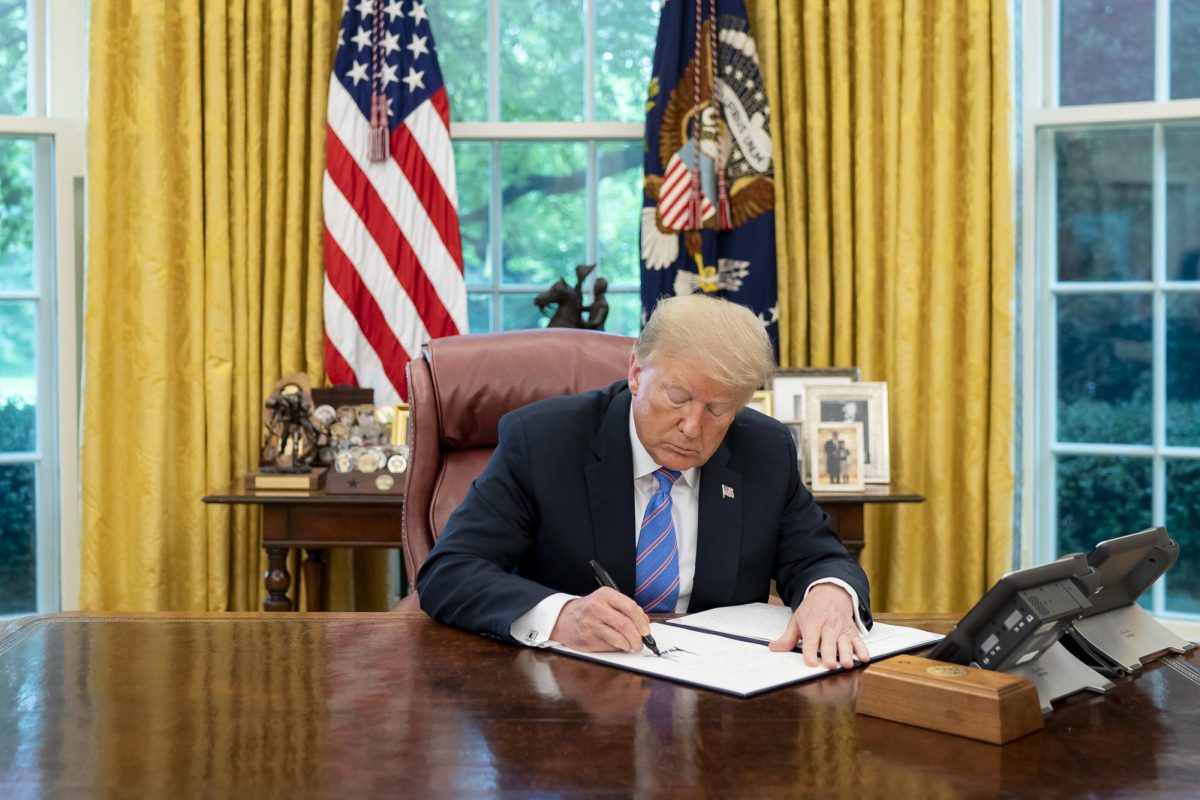In only a ten day period from his inauguration, President Donald J. Trump signed over 300 executive orders, the most a president has ever done in such a short time from gaining office. In response to the changes occurring in the White House, the Office of the President of Seattle Pacific University sent out an email on Jan. 30 to all students addressing these changes.
In the email, President Deana L. Porterfield of Seattle Pacific affirmed the university’s commitment to students in protecting their information.
“In accordance with FERPA, SPU generally does not share personal student information with third parties without student consent. Any decision to disclose student records to immigration authorities will be made only by designated University officials after a thorough review of the request.”
Seattle Pacific’s stance on the measures by the federal government comes after rule revisions to the U.S. Department of Homeland Security regarding “enforcement actions at ‘sensitive locations,’ such as colleges and universities.“
According to Doctor Jeff Jordan, the vice president for Student Life, concerned students have come to faculty and have expressed their worries about these issues and what to do.
“There are folks that have approached the President [of Seattle Pacific]. There’s a couple of different groups [faculty] that are working on a couple of different things, [like] how do we support our students?” Jordan said. “What are we as an institution and organization either obligated to do, not obligated to do? What are our policies and any type of interactions? What are other things that we need to take a look at in regards to any type of financial issues?”
To Connor DeCoursey, a first-year majoring in political science, philosophy, and economics (PPE), the government’s change in immigration and enforcement is a valid reason for Seattle Pacific to release such a statement to students.
“I feel like it’s a fair act by SPU. It was a reaction to what was happening,” DeCoursey said. “I believe, because they are private college, they have every right to do so to protect their students.”
The memo released by Seattle Pacific also comes after the White House initiated several cuts in federal funding, saving the U.S. government near $1 trillion dollars.
To Jamie Potter, a first-year student majoring in accounting, he sees this public memo by Seattle Pacific as a move to keep students from panicking that the FAFSA may be next and that they may not be able to get access to federal aid.
“[SPU is] probably incentivized to try, because they know that if they don’t, then their own student enrollment will probably get cut,” Potter said. “One way to look at that is to say they have student enrollment because of the FAFSA.”
With the struggling financial situation and future of Seattle Pacific in question, whether the university can do anything to help students from this scenario is debatable.
“I mean, they’re already giving out [lots of] scholarships, just so they can incentivize a larger student body,” Potter said. “I would assume they’d do something, but I’m not sure what they really have the funds to do.”
According to Jenny Elsey, the associate vice president for Student Life and the dean for Student Success, Seattle Pacific is somewhat prepared for such an event regarding student tuition.
“We do have funds that are set up that help students in emergencies,” Elsey said. “I think the challenge in the conversation is these funds are typically designed to help, kind of one-off situations that occur.”
However, students across the country should not have to worry about this outcome as these cuts will not affect individual grants, as stated by the Press Secretary for the White House. On Jan. 29, President Trump signed an executive order that would broaden school choice for Americans families across the country by allowing kindergarteners to twelfth-graders attending government-run schools to be able to choose schools outside their assigned region. To cut individual grants such as the FAFSA, therefore, would be counterproductive to the mission of Trump’s administration.
Likewise, DeCoursey agrees that the likelihood of individual grants being affected are unlikely.
“Because Trump assured these things, I would not be scared. Look at all the things he has promised and already fulfilled in the first two weeks of his presidency,” DeCoursey said. “If what he’s saying about what has happened before his campaign and has already been proven true because he has fulfilled that, then I see no reason why he could fulfill this as well, and having it not affect anything like Social Security, FAFSA, food stamps, etc.”


















































































